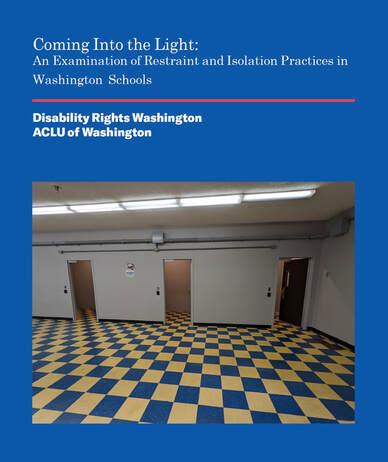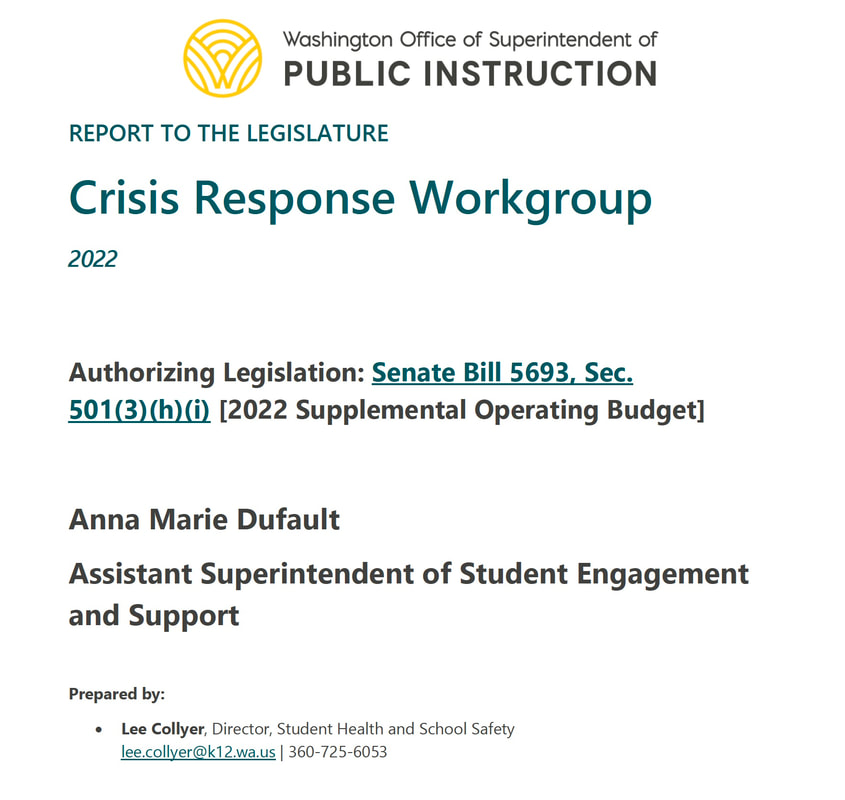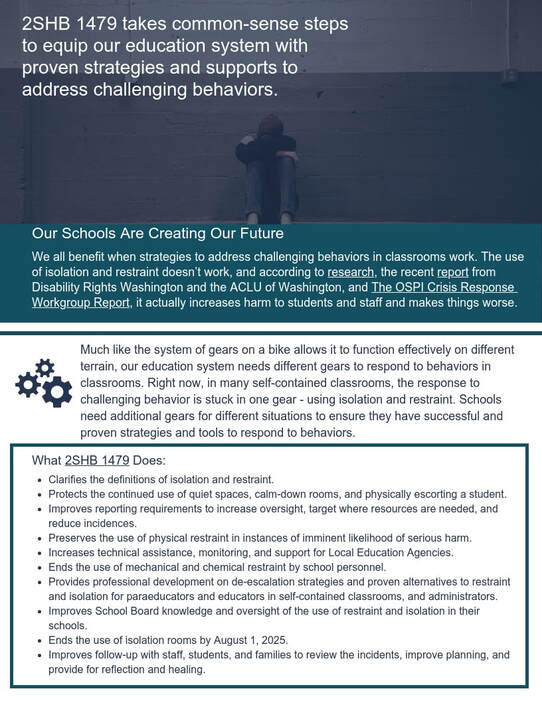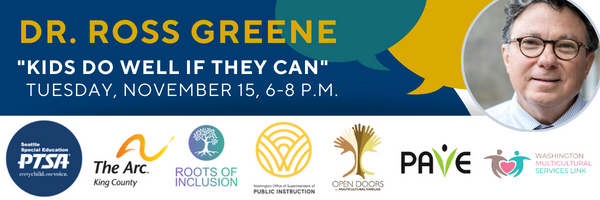Eliminating the Use of
Restraint and Isolation in Schools
Restraint and isolation are outdated crisis management techniques that are commonly used in Washington schools, despite the passage of policy to restrict and eliminate its use. These practices are disproportionately used on students with disabilities, students of color, students in foster care, and students experiencing homelessness. Restraint and isolation as a response to challenging behavior is ineffective and dangerous and lead to significant trauma and injuries to students, teachers, staff, and families. The elimination of restraint and isolation is a civil rights and a human rights issue.
Roots of Inclusion's advocates for schools that are safe, supportive, and equitable spaces for every student and family. Changes in our understanding about the brain, nervous systems, human development, and behavior are shifting the paradigm in how schools can understand and respond to challenging behaviors. Neuroscience has expanded our understanding of the impact of toxic stress and trauma on developing brains and the difference between intentional behaviors and stress behaviors.
The time has come to utilize proactive approaches to challenging behaviors that are relationship-based, trauma-informed, developmentally appropriate, and individualized. We must take action to align educational and discipline approaches to the current research and brain science with a commitment to racial equity, access, and inclusion.
Shared here are recent reports on the use of restraint and isolation in Washington as well as resources and ways to connect to the work of eliminating the use of these practices.
Roots of Inclusion's advocates for schools that are safe, supportive, and equitable spaces for every student and family. Changes in our understanding about the brain, nervous systems, human development, and behavior are shifting the paradigm in how schools can understand and respond to challenging behaviors. Neuroscience has expanded our understanding of the impact of toxic stress and trauma on developing brains and the difference between intentional behaviors and stress behaviors.
The time has come to utilize proactive approaches to challenging behaviors that are relationship-based, trauma-informed, developmentally appropriate, and individualized. We must take action to align educational and discipline approaches to the current research and brain science with a commitment to racial equity, access, and inclusion.
Shared here are recent reports on the use of restraint and isolation in Washington as well as resources and ways to connect to the work of eliminating the use of these practices.
Reports:
|
April 2023
|
Justice Department Secures Agreement with Spokane Public Schools to Remedy Discriminatory Seclusion and Restraint Practices
|
Legislation:
During the 2023 Washington State Legislature session there was legislation introduced that would eliminate the use of isolation in Washington schools. You can learn more the proposed bills by clicking the button below.
Model Policy:
Below are examples of policy and procedure related specifically to restraint and isolation that have been implemented by two Washington school districts.
Spokane Public Schools Policy 3246
Spokane Public Schools Procedure 3246
Seattle Public Schools Policy 3246
Seattle Public Schools Procedure 3246
Spokane Public Schools Procedure 3246
Seattle Public Schools Policy 3246
Seattle Public Schools Procedure 3246
|
|
Watch
Watch Dr. Ross Greene's presentation for Seattle/WA State (recorded 11/15/22) on how Collaborative and Proactive Solutions (CPS) uses compassion and problem solving to help schools meet the needs of all learners, while reducing punitive, exclusionary disciplinary practices like suspensions, restraints, and isolation. Additional resources from Dr. Greene's presentation can be found on the Seattle Special Education PTSA Website. |





